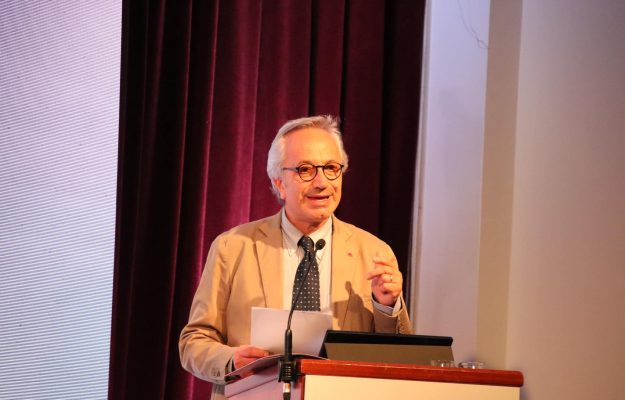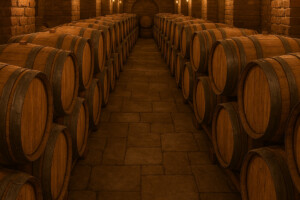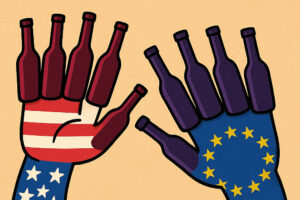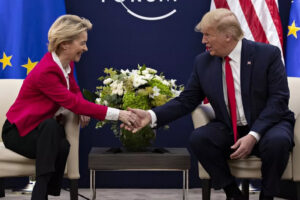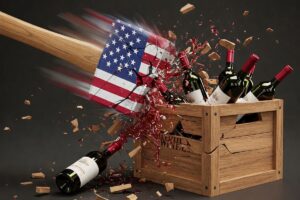That wine, if consumed with moderation and intelligence, is not only not bad for you, but can also have beneficial effects, especially when associated with meals, with a healthy lifestyle, and with a dietary regimen that is that of the Mediterranean diet, is told by millennia-old empirical evidence, but it must be increasingly confirmed by science. In a global context where international organizations have to take care of public health, but which sometimes in a simplistic way risk universally applying reasoning that derives from critical situations of immoderate consumption and abuse, obviously harmful, risking unfairly penalizing products and contexts where instead such criticalities are not there, or are marginal and manageable with other methods, which are first and foremost prevention and education on consumption. This is the starting point of the reflection of Luigi Moio, president of the International Organization of Vine and Wine (OIV), at the Symposium on “Wine and Health” wanted by Assoenologi, on January 13-14 in Naples. Which, below, we repropose in its entire version.
“The topic of “Wine and Health” is a never-ending debate. A pairing that animates a confrontation that has changed continuously over time, strongly influenced by the evolution of humanity, progress and advancement of knowledge. At a time not far from our own, when the main issue was food safety, Louis Pasteur wrote, in his extraordinary book on the diseases of wine published in 1866, that “wine is the most hygienic and healthy of drinks”. Obviously this statement must be contextualized in its time, but there is much truth in that the presence of alcohol, by the way not excessive in wine, combined with the drink’s acidity, prevents its contamination by microorganisms lethal to human health. For millennia, in fact, wine has been used for safe hydration since it is 85-87% water. Water, on the other hand, was very dangerous. To Pasteur himself as many as three daughters (ages 2, 9, and 15) died of typhoid fever (caused by the bacterium Salmonella Typhi), and it is likely that these tremendous personal tragedies gave him even greater impetus in conducting his extraordinary studies directed at saving people from contagious diseases. It is quite evident, but this is already reported by the writers and poets of classical antiquity, that excess causes serious problems. In fact, between 1920 and 1933, during the prohibition period in the United States, wine was also blamed. A ban on the manufacture, sale, importation and transportation of alcohol was enacted during those years. But as is well known, history did not go in the direction of decreasing the mass consumption that was ingrained in the traditions and habits of Americans. On the contrary, according to statistics from the Court of Justice at the time, theft, robbery, tax evasion, bribery, and smuggling increased, and the number of alcoholics tripled compared to the previous period. Of course, at that time, quite understandably, the entire wine industry, reacted strongly to Prohibition to defend wine, firmly highlighting the aspects that make this age-old beverage incomparable to any other alcoholic beverage. In fact, as I have repeatedly mentioned in various national and international speeches, wine, unlike other beverages, is a single-ingredient product. All the components needed to make it are in harmony within the grape cluster, and the alcohol in it is formed naturally during fermentation, reaching levels that are not excessive. So, as a beverage containing alcohol it is unique, because of the way it is obtained, because of the strong ties with the territories of origin of which it is a formidable ambassador, because of the way it is consumed, in small sips to accompany meals, and because of the culture and strong traditions associated with it.
In this context the OIV, which I have the honor to chair, has played and plays a very important role. Its birth rests on a long scientific and diplomatic history that began to address and solve the problem of phylloxera, but later, precisely during Prohibition, it underwent a strong acceleration, because among the banned spirits there was also wine, with an ancient history and a completely different nature, which had to be absolutely protected. From the beginning, the main goals of the OIV, have always been the protection and custody of the integrity of wine and its strong link with its territories of origin, in addition to the other very important and always topical goal of encouraging and facilitating trade between countries by suggesting shared rules. Even, the first article of the OIV’s founding act, dating back to 1924 states that the organization was to collect, study and publish information demonstrating the beneficial effects of wine.
In fact, to give an immediate and concrete impulse to the dissemination and promotion of wine culture in 1930 “Le Prix de l’Oiv” was born. A prize that through a public appeal invited the nomination of scientific articles, texts, books in favor of wine and its beneficial aspects on health, which at that time was entitled: “The Truth about Wine”. Today this prize is the oldest in the world and in 77 editions has been awarded to the authors of more than 800 books on topics related to the fields, of viticulture, enology, economics and law, history and literature, wine and its territories, wine and health.
Studies and research on this issue went on for decades until the sensational news in 1991, when French epidemiologist Serge Renaud, in an interview with an American television network, discussing the link between coronary heart disease and lipid intake, first spoke of the “French paradox” or the “Bordeaux effect”. That is: drinking wine, especially red, results in a significant reduction in cardiovascular disease even if the diet is high in lipids. Later studies put into evidence that probably this positive effect was related to the presence of resveratrol. In those years, a research colleague of mine brought me from the United States a vial containing hard capsules of resveratrol, recovered from red wine processing waste.But Renaud's announcement, provoked the immediate reaction of the WHO, which posed the following question: what is the amount of wine to drink to preserve us from cardiovascular complications while avoiding liver disease? Since those years, scientific studies on compounds in wine with a positive functioning role on the body have multiplied exponentially, and in more than 30 years the scientific publications produced on the topic of wine and health have reached 236,068.
Broken down into wine and health (58,443), wine and resveratrol (59,456), wine and longevity (4,251), wine and the functional role of polyphenols (83,925), wine and cardiovascular problems (20,586): wine and the Mediterranean diet (5,970), and wine and the prevention of neurological degeneration (3,437). The common purpose of this huge body of scientific work was to demonstrate the beneficial effects of wine taken responsibly and in moderate doses as part of a healthy lifestyle. So the scientific documentation supporting the beneficial effects of wine is indeed very substantial and robust to produce meticulous and detailed summary reports, with which to discuss and confront in the appropriate committees at the European level. But times change fast, and information runs just as fast, losing its correctness along the way. And today a part of humanity, perhaps the most fortunate part, has put health at the center of life. Life expectancy in the last hundred years has almost doubled, from just under forty years to over eighty, varying by country. Health has become the fundamental goal of life to the point of the paradox of “no longer living” by giving up and putting a premium on, for example, meat. sugar, salt, fatty foods in general, cooking systems, and so on. So in the European-wide global public health prevention plan, as is now widely known, alcohol has also been included and, along with alcohol, all beverages containing it, including wine. So the legitimate concern is related to the consequences of the report on “Beating Cancer” by the European Parliament's Special Committee on Cancer (Beating Cancer - better known as the Beca Committee) in which it generalizes about the carcinogenic effects of alcohol without any distinction between wine and spirits and, most importantly, without discerning between “responsible consumption” and “harmful consumption or abuse”. This is because the Beca paper is based on a study that supports the hypothesis of “no safe level” of alcohol consumption, which was published in “The Lancet” in 2018 and, among other things, was strongly criticized by the scientific community for some flaws in the analysis.
A model based on assumptions that do not take lifestyle into account, and consequently cannot be the only basis for drawing conclusions about alcohol consumption and cancer risk. Indeed, there is no unambiguous scientific data to support this correlation since cancer is a multifactorial disease, and risk factors should be evaluated in the context of cultural, drinking, eating, and lifestyle patterns. Much scientific evidence, on the other hand, indicates that drinking wine in moderation, combined with meals, as part of a healthy lifestyle and balanced diet can contribute to increased life expectancy. Incidentally, the WHO itself defines health as “a state of complete physical, mental and social well-being”. So it is not only the absence of disease and/or infirmity to be evaluated, but it is necessary to consider all dimensions of health. That is, all the aspects that lead to an individual's well-being and that are often little discussed in some studies. Wine in the context of a healthy individual and social life, and in the context of responsible and moderate consumption, can contribute to these goals. In order to choose a bottle of wine to place in the center of a table, it is necessary to have accurate information about the food with which to taste it and to initiate a series of reflections involving memories, geography, places, scents, flavors, variety of grapes, composition of soils and their exposure, and many other factors that make that wine and the moment in which it is tasted unique. Consequently, wine can assume, even, the role of an educational medium, and this pedagogical aspect of it is extremely interesting since as a first consequence it results in the virtual removal of alcohol from the drink. Such peculiarities of wine, as I have already mentioned, completely set it apart from any other alcoholic beverage.
But today’s scenario to deal with has changed rapidly: the age of daily consumers has decreased, consumption outside meals has increased, and direct and indirect deaths caused by the psychotropic effects of alcohol have increased. Wine has assumed a planetary spread, imposing itself even in countries without our tradition and culture towards this beverage in which it is necessary to operate precise programs of wine education and training. It is likely that this new scenario has influenced some of the decisions behind the anti-alcohol plan that has set a goal of reducing consumption by 10% by the end of 2025.
In thinking deeply about this issue, often, I think that alcohol was included ad hoc in the anti-cancer document because of the strong deterrent action that the word cancer exerts on the population, to try to reduce consumption especially in those who have no responsibility and discipline toward alcoholic beverages.
But more than reducing consumption, in my opinion, it is necessary to talk about rationalization, intelligent consumption, responsible consumption. This is the only way to circumvent a delegitimization of wine that would pave the way for anti-alcohol movements that would obscure the truth about wine, resulting in more harm than help to public health. However, the strategy of protecting the integrity of wine and a tasteful defense of it cannot be set solely on the usual, albeit very valid but insufficient, arguments based on history, tradition, cultural, landscape, tradition aspects and so on. Scientific data must be answered with as much scientific evidence and as much reasonableness, and wine has all the credentials to go down this road and easily defeat this umpteenth attack. It is necessary, as we all now say, to distinguish abuse from responsible consumption. But this concept cannot be grasped unless education processes are initiated for those who approach the beverage. Perhaps for historically producing countries, consumption is usually more correct because wine and vines are part of a high cultural tradition. But in general and for many other countries, we need to activate wine training and education programs that make people understand the very high cultural value of this product, supporting responsible consumption especially during meals and within a healthy lifestyle. It is necessary to work incisively on appropriate and correct information to consumers. In an extremely clear way, without prevarication, involving all the actors in the supply chain from producers, consortia, trade associations and, of course, institutions.
All united, we must communicate correctly, not to hide, but to help understand. because even if we are dealing with complex topics, if explained well and in a simple and clear way, it is possible to achieve the result of enhancing even more the uniqueness and extraordinariness of wine, which in little more than 8,000 years, because of its naturalness and its extraordinary diversity linked to the territories of origin, has conquered the whole world. By the way, this is the only way to avoid being told not to worry about the health of consumers; in fact, it is exactly the opposite, just think of the great work done by the OIV’s scientific experts in the Safety and Health Commission, which was established some 30 years ago. Before concluding a final reference to the OIV, which, as I said, at the beginning of this speech, is the result of a long scientific and diplomatic history. In 2024, the 100th anniversary of its founding will be celebrated, and in light of these new scenarios that lie ahead, the action of this intergovernmental organization and of all member countries will be even more careful and determined in bringing forward in the appropriate fora and in the various committees at the other intergovernmental organizations the reasons directed toward protecting and preserving the uniqueness of wine, as a beverage that symbolizes conviviality and models of healthy living, firmly and unitedly opposing any action that could lead to its unjust and inappropriate delegitimization”.
Copyright © 2000/2025
Contatti: info@winenews.it
Seguici anche su Twitter: @WineNewsIt
Seguici anche su Facebook: @winenewsit
Questo articolo è tratto dall'archivio di WineNews - Tutti i diritti riservati - Copyright © 2000/2025










